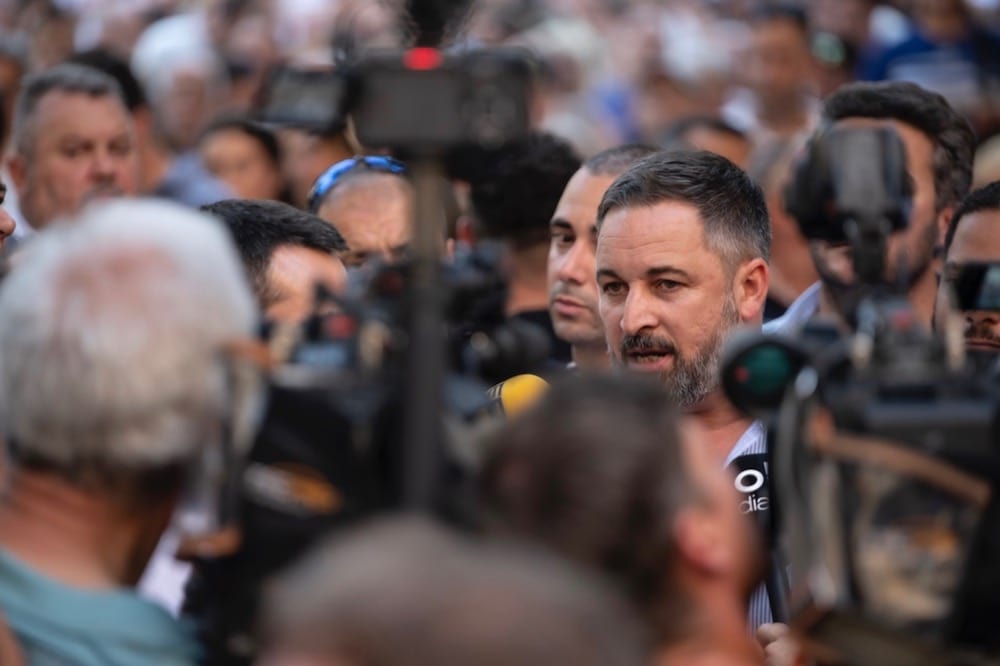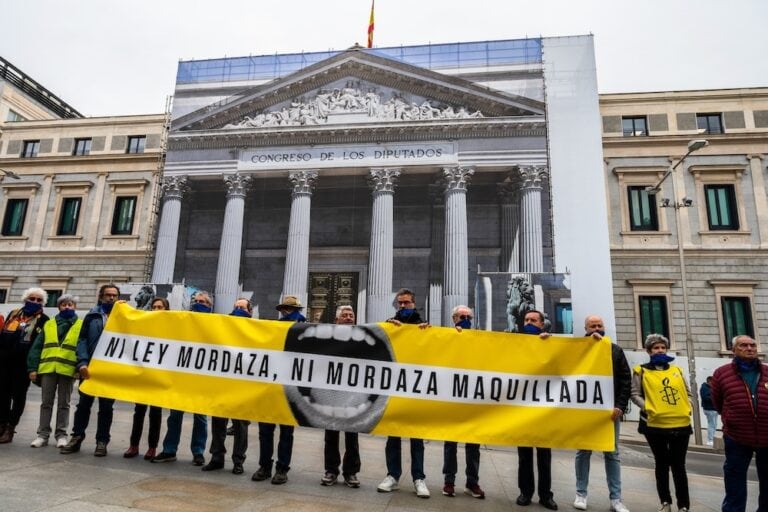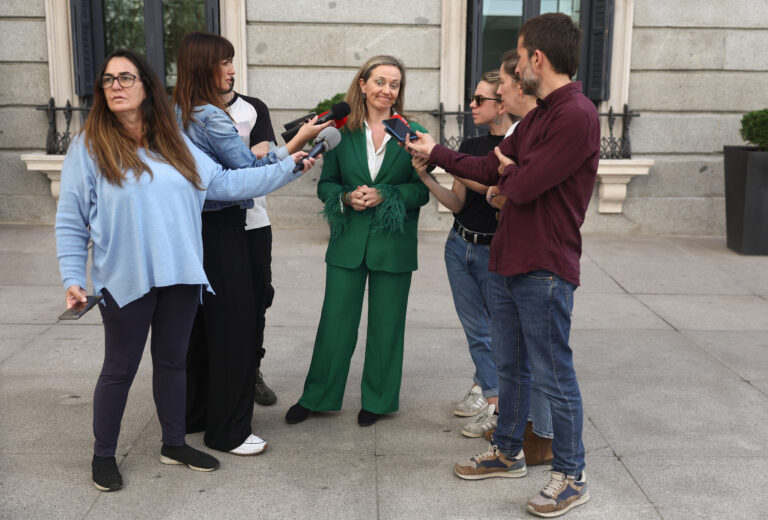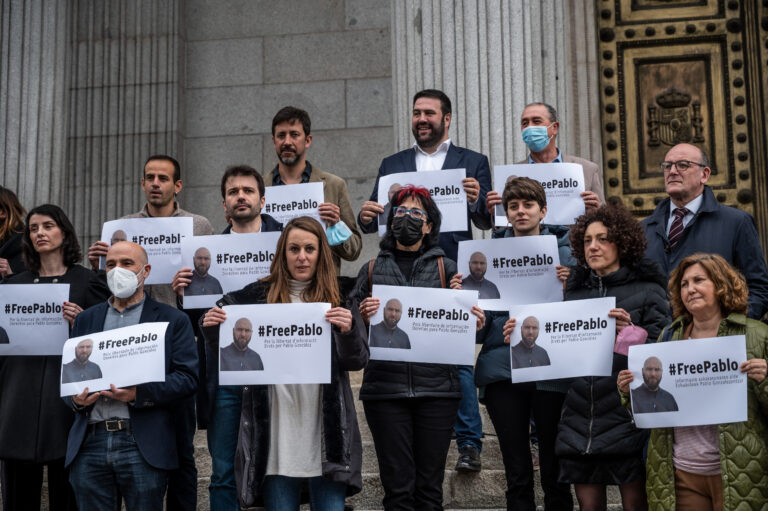Vox began barring certain media from its headquarters and events during 2019. Since then, it has extended these vetoes, excluding more and more media outlets, journalists and journalists’ associations.
This statement was originally published on rsf.org on 6 July 2023.
As the official campaign for Spain’s parliamentary elections on 23 July gets underway, Reporters Without Borders (RSF) calls on the far-right party Vox to withdraw the vetoes it has imposed on certain media and journalists for the past four years and instead to comply with Spanish legislation, which upholds press freedom.
Vox began barring certain media from its headquarters and its events during the previous parliamentary elections in 2019. Since then, it has not only maintained but also extended these vetoes. As well as excluding more and more media outlets, journalists and even journalists’ associations from its press conferences, it has also defamed and insulted them on social media, called for them to be shut down and brought various – unsuccessful – lawsuits against them. These measures have had a big impact on the media’s coverage of Vox.
“I don’t go to the daily press conferences,” said Sara Selva, a reporter for the Cadena SER radio network. “There’s no point because they prevent us from entering.” Excluded from Vox’s election activities and the evening events at its headquarters, she and other journalists limit themselves to covering Vox “from the street, with the help of other colleagues” and from social media.
Miguel González, a veteran reporter for the El País newspaper, has the same problems. “As we’re not accredited, we cannot access the press areas to work and take good photos,” he said. “Via their streaming, we are only receivers of their messages. Their spokespersons don’t answer any questions, and when they do, it’s often to insult us.”
Vox does not just ban the journalists it dislikes. After a local news site, El Periódico de Ceuta, revealed the xenophobic, Islamophobic and supremacist content of its chats in a WhatsApp group for Vox supporters, Vox succeeded in depriving it of advertising in reprisal.
“They filed a complaint accusing me of harassment, blackmail, extortion and membership of a criminal organisation,” El Periódico de Ceuta editor Paloma Fernández Coleto said. “Then, when the Popular Party negotiated a regional government pact with Vox in Ceuta, one of Vox’s conditions was that we would no longer get access to state advertising.” The news site was thereby excluded from an advertising budget potentially worth up to 2.5 million euros.
“Systematically vetoing, excluding and insulting media and journalists is the opposite of the principles officially proclaimed by Vox, which insists on its deep attachment to Spain’s constitution, although article 20 of the constitution enshrines the right of journalists to inform and the right of its citizens to be informed. A party that aspires to govern Spain, alone or in alliance with other parties, must scrupulously respect press freedom, not attack it and thereby obstruct the democratic process.”
Edith Rodríguez Cachera, RSF Spain vice-president
Vox’s exclusions violate Spanish law. As El País’s González points out, “a political party is one of the basic institutions of a democracy, which is why parties receive subsidies that are paid for with our taxes, subsidies that, in Vox’s case, represent more than 60% of its income.”
At the request of El País and Cadena SER (which are both owned by the PRISA media group), the Central Electoral Commission (JCE) reminded Vox on 28 June that it must not discriminate against any media at its public events during the election campaign. A publicly funded party cannot claim to act like a private entity with regard to admission to its events, emailing journalists to deny them accreditation on such pretexts as capacity limitations.
Spain’s supreme court already took a clear position on this issue in March 2021. Referring to Vox’s claim that it had barred certain media outlets on capacity grounds, the court said: “The reality is that Vox’s exclusion of certain media from coverage of its electoral events does not have this objective,” but is based on “the consideration that these media are hostile to this political party.”
The court also found that Vox discriminated against the PRISA group’s media during the previous parliamentary election campaign “because it regarded them as hostile,” which implied “a violation of transparency and objectivity guarantees” that are supposed to be safeguarded during elections.



